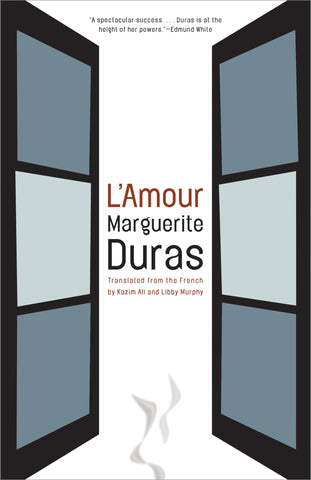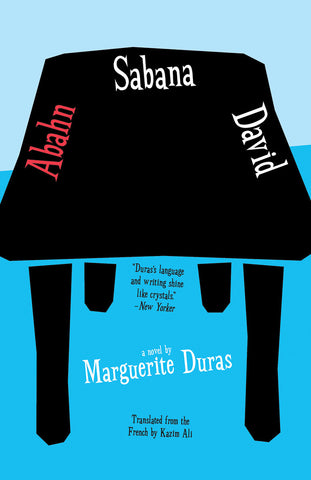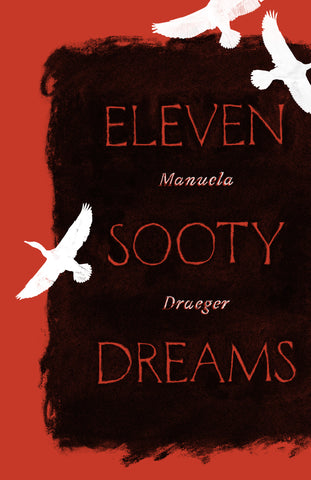L'Amour
$12.95
July 16, 2013
novel | pb | 112 pgs
5.5" x 8.5"
978-1-934824-79-5
“Duras’s language and writing shine like crystals.”
—New Yorker
A man—the traveler—arrives in the seaside town of S. Thala with the intent to abandon his present, and instead finds himself abruptly reintroduced to his past. Through his subsequent interactions with “her,” the woman to whom he was briefly engaged as a young man over twenty years ago, and “him,” the man who walks and keeps watch over “her,” the traveler is soon drawn back in and acclimated to the strange timelessness and company that is S. Thala.
Written in a stark and cinematic narrative style, this sequel to Duras’s 1964 novelThe Ravishing of Lol Stein is a curious, yet haunting representation of the human memory: what we choose to recall, what we choose to forget, and how reliable we ultimately decide ourselves to be. (Read an Excerpt)
Translated from the French by Kazim Ali & Libby Murphy
Introduction by Kazim Ali
•
About the Author: Marguerite Duras was born in Giadinh, Vietnam (then Indochina) to French parents. During her lifetime she wrote dozens of plays, film scripts, and novels, including The Ravishing of Lol Stein, The Sea Wall, and Hiroshima, Mon Amour, and was associated with the nouveau roman (or new novel) French literary movement. Duras is probably most well known for The Lover, an autobiographical work that received the Goncourt prize in 1984 and was made into a film in 1992. She died in Paris in 1996 at the age of 81.
About the Translators: Kazim Ali is a poet, essayist, and novelist, and has published a translation of Water's Footfall by Sohrab Sepehri in addition to co-translating Duras's L'Amour. He teaches at Oberlin College and the University of Southern Maine.
Libby Murphy teaches at Oberlin College. She has published articles on print culture and the First World War, and on the reception of Charlie Chaplin's films in wartime and postwar France.
•
“A spectacular success. . . . Duras is at the height of her powers.”
—Edmund White
“Duras manages to combine the seemingly irreconcilable perspectives of confession and objectivity, of lyrical poetry and nouveau roman. The sentences lodge themselves slowly in the reader’s mind until they detonate with all the force of fused feeling and thought.”
—New York Times





